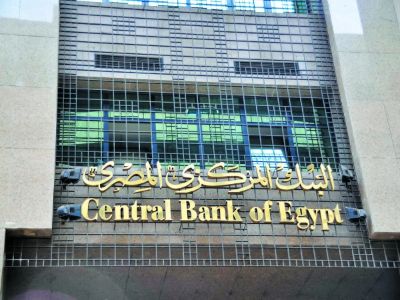
-
Published: 22 December 2022

In order to contain inflationary pressures and bring inflation rates to target levels, the Central Bank of Egypt raised interest rates by 300 basis points, after a meeting held by the
bank's monetary policy committee, and the central bank announced in a statement that it raised the deposit and lending rates overnight, and the main transaction rate of the central bank by 300 basis points, to 16.25 percent, 17.25 percent, and 16.75 percent, respectively.
The bank also raised the credit and debit rate by 300 basis points to 16.75 percent.
The central bank's statement said that at the local level, preliminary data indicate a recovery in economic activity during the third quarter of this year, as real GDP recorded a growth rate of 4.4 percent, compared to 3.3 percent during the second quarter of 2022.
The growth in real GDP was driven by the positive contribution of the agriculture, wholesale and retail sectors, according to the statement.
The central bank said that the annual inflation rate in urban areas has continued to rise more during the fourth quarter of this year, registering 18.7 percent in November, the highest rate since December 2017.
The core inflation rate also rose to 21.5 percent in November.
The statement explained that the core inflation rate for November was affected by the devaluation of the Egyptian pound during last October, in addition to the increase in the money supply, in addition to the continuing negative effects of the crisis in Ukraine.
"As a result of these developments, it is expected that the annual rate of general urban inflation will exceed its previously announced target level of 7 percent on average during the fourth quarter of 2022," according to the central bank's statement.
The central bank explained that the monetary policy committee will closely follow global and domestic economic developments and will continue to use all its monetary tools in order to contain inflationary pressures from the demand side and the secondary effects of supply shocks "that may lead to inflation deviation from its target rates".
The MPC stressed that the path of the base rates of return depends on the expected inflation rates and not the prevailing inflation rates.
